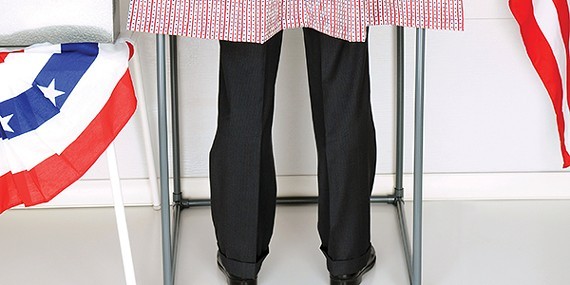Politics so often is a matter of timing and deadlines. Such-and-such a date for announcing a candidacy. Such-and-such a date for filing. There’s a withdrawal deadline. A schedule of fundraisers, campaign kickoffs, and headquarters openings. The start of early voting, election day itself. And if all goes well, a time and date for one’s inauguration and/or public swearing-in.
All that regularity and the established calendar of publicly shared functions were skewed big-time in the shaggy-dog story of 2020 — a year in which pestilence stalked the land and drove everyone apart from one another, and the biggest race of all, that for the presidency, was made anti-climactic by the refusal of the loser to admit to the plain and obvious results.

Still and all, some things got accomplished — the most significant of which was the American voters’ decisive rejection of the Trump presidency, a reality-TV show characterized by its total denial of reality, never more so than in an unending election aftermath in which the unfrocked leader, naked as a jaybird, cried foul and continued to clamor for the cloak of high office long after it made any sense to do so.
Indeed, one of the unresolved mysteries at year’s end was the question of whether on January 20th of the new year, Donald Trump will voluntarily take his leave or have to be frog-marched out of the White House. In any case, Democrat Joe Biden will be inaugurated, and with him, hopefully, an era of comparative sense and empathy.
Another matter yet to be resolved was that of which party would control the U.S. Senate, a question that won’t be answered until January 5th via the outcome of two runoff elections in the state of Georgia, a state that went blue in the presidential election and seems destined to become the kind of political bellwether that Tennessee itself used to be when the tide of power would shift back and forth between Republicans and Democrats.
The Volunteer State itself has become so predictably right-wing and Republican that not only could no ranking Democrat be found to oppose Trump’s hand-picked Senate candidate, former Ambassador and state official Bill Hagerty, but the exemplars of GOP-dominated state government — legislative, executive, and, in the case of the state Attorney General, quasi-judicial — all willingly followed the Trump line, even to the extent of blessing his rebellion against the outcome of a Constitutional election.
Once again, despite spirited challenges by Democrats in legislative races, several of them right here in Shelby County, the Republicans held onto their super-majority in the General Assembly. At the congressional level, both local U.S. Representatives, Democrat Steve Cohen in the 9th District and Republican David Kustoff in the 8th, held serve against what were basically nominal challenges. Cohen and his congressional counterpart in Nashville, Jim Cooper, were the only Democrats to maintain a position of political prominence statewide.
At all levels of government in 2020, the specter of COVID-19 made its presence felt, accounting for bursts of financial largesse and sporadic action. Governor Bill Lee monitored the pandemic but proved loath to establish much beyond minimal voluntary safety mandates. The legislature responded to the emergency with a lengthy recess of several months (one which set aside resolution of several controversial matters) and resumed in mid-summer to convert a $200 million infrastructure allotment into a COVID emergency fund. Memphis and Shelby County both profited but had to fight for their share. Both governments also benefited from the federal CARES act and established a joint task force. County government in particular weighed in on anti-COVID efforts via consistent Health Department directives, and at year’s end, amid a new spike in cases, county Mayor Lee Harris and Bartlett Mayor Keith McDonald were leading the drive for a statewide mask mandate.
Efforts to upgrade local election machinery foundered during 2020 due to fundamental disagreements between activists seeking the transparency of paper-ballot voting systems and county election administrator Linda Phillips, who, backed by an Election Commission majority, preferred ballot-marking devices. Meanwhile, vigorous legal efforts by local plaintiffs had broadened the availability of mail-in balloting, providing a way station of sorts toward change in voting procedures.